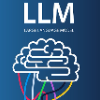Recent advancements in robot control using large language models (LLMs) have demonstrated significant potential, primarily due to LLMs' capabilities to understand natural language commands and generate executable plans in various languages. However, in real-time and interactive applications involving mobile robots, particularly drones, the sequential token generation process inherent to LLMs introduces substantial latency, i.e. response time, in control plan generation. In this paper, we present a system called ChatFly that tackles this problem using a combination of a novel programming language called MiniSpec and its runtime to reduce the plan generation time and drone response time. That is, instead of asking an LLM to write a program (robotic plan) in the popular but verbose Python, ChatFly gets it to do it in MiniSpec specially designed for token efficiency and stream interpretation. Using a set of challenging drone tasks, we show that design choices made by ChatFly can reduce up to 62% response time and provide a more consistent user experience, enabling responsive and intelligent LLM-based drone control with efficient completion.
翻译:暂无翻译




